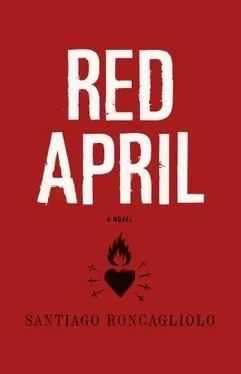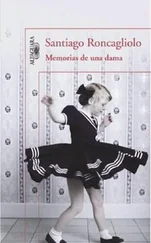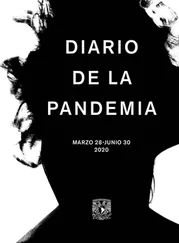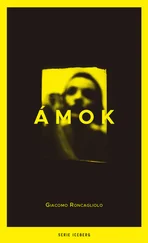As he returned to the office he felt calmer, unburdened. His mother's room relaxed him. He spent hours there. Occasionally, often at night, he would recall some new detail, a photograph, an altarpiece that had decorated his mamacita's room in his childhood. He would hurry to look for it in the market and order it if there was no copy exactly like the one in his memory. Little by little, the room had become a three-dimensional portrait of his nostalgia.
When he reached his desk, he found an envelope containing an invitation to the institutional parade on Sunday. He made a note of it in his date book, wrote an account of the complaint for the police, and made copies of the forensic report for each envelope. The chocolate smudges were well hidden on the photocopies. They looked like ink. Then he wrote a request for information to the Ministry of Energy and Mines asking what source could have produced sufficient heat to burn the body. And another request to the municipality of Quinua asking that they send him copies in quadruplicate of missing persons reports dated subsequent to January 1 of the current year.
He spent the rest of the afternoon taking care of other pending matters, such as the complaint of a citizen against his neighbor, whom he accused in his statement of being a faggot. The prosecutor composed a reply to the report stating that homosexuality in any of its variants does not constitute a misdemeanor, infraction, or serious crime since it is not duly specified as such in the penal code. However, he added, if the individual engaged in relations with a human or judicial person without verifying that it was a concomitant voluntary act by the aforesaid person, he might commit a crime against honor as specified under the classification of violation.
He asked himself how to sanction the violation of one man by another. He realized he could not marry them because there was no relevant procedure to do so. Perhaps the situation deserved another brief.
Sunday, March 12 / Tuesday, March 21
The institutional parade at Lent had been established by decree in 1994 at the request of the archbishop. It began with the several branches of the armed forces passing before the dais in the Plaza de Armas and saluting the competent authorities of the state, the Church, and the military high command. After the hussars and the rangers, and always to the music of the National Police Band, various schools and institutions paraded past while an official introduced them over the loudspeakers:
“The María Parado de Bellido School: established by ministerial resolution 000578904 and governed by municipal statute 887654333, for two years this school has been training young Ayacuchan seamstresses and serving the interests of national handicrafts. The Daniel Alcides Carrión Institute: created by ministerial resolution …”
Associate District Prosecutor Félix Chacaltana Saldívar liked parades, the sonorous passing by of national symbols. The uniforms made him feel secure and proud, the young students allowed him to trust in the future, the cassocks guaranteed respect for traditions. He enjoyed hearing the National Anthem and the March of the Flag under the brilliance of trumpets and military braid. He sat proudly in the officials' box, dressed in his best black suit, his good tie, and a handkerchief in his pocket. The year before, after his arrival, he had participated by reciting a poem by José Santos Chocano, and the crowd had applauded loudly the seriousness of his recitation and the solemnity of his diction.
He did not like as much what came afterward, when the parade ended and the functionaries gathered for a fraternal celebration in the municipal ballroom. The year before, he had been invited to the celebration because of his poem. This year, perhaps it was a mistake. Although he felt proud to be considered one of the high-ranking officials, he never really knew what to say on those occasions. The competent authorities circulated around him, holding glasses of rosé, without ever stopping beside him. Many of the mid-and low-ranking functionaries spoke to him for a while but looked elsewhere, searching for someone more important with whom to converse. It was easier to communicate with them in writing.
As the celebration progressed and the alcohol made the rounds, the subject became limited to enumerating the women each man desired and the details of a hypothetical sexual encounter. For the moment, Associate District Prosecutor Félix Chacaltana Saldívar did not want to desire any woman. He tended to respond to these catalogues by nodding and wondering when he could say something, a word at least, trying to think of some woman who had attracted his attention. As a consequence, he normally preferred not to be present, to stay home tending to his mother's room or reading to himself the poems of José Santos Chocano. He liked small places, where no one heard his voice. But now he had a reason to go. He had to speak to Captain Pacheco, who had not yet responded to his inquiries. A case as important as this one ought to move to the highest levels as quickly as possible.
As he reached the ballroom, he met Judge Briceño, a short, nervous man with the little eyes and teeth of a guinea pig. They greeted each other. The judge asked:
“And how are things going in the Office of the Prosecutor? Are you getting used to Huamanga?”
“Well, as it happens, right now I am pursuing a case of the utmost importance …”
“I want to buy a car, Chacaltana. Even if it's a Tico. But a judge has to have a car. Don't you agree? I mean, am I right?”
“Absolutely. The case I am pursuing has to do with a recently deceased individual who …”
“A Tico or a Datsun? Because some 1990 Datsuns have come in that have hardly been driven …”
The judge discoursed on the topic for ten minutes, until Chacaltana caught sight of Captain Pacheco near the national pavilion in the ballroom, chatting with an official wearing a sky-blue tie and an officer in uniform. Judge Briceño noticed where he was looking.
“I see that you're aiming high,” he said in a complicitous tone.
“Excuse me?”
“Commander Carrión,” the judge indicated. The prosecutor understood that he was referring to the military man in the group.
“Of course, I have sent him some reports,” he replied.
“Oh, yes? Why? Are you looking for a promotion?”
“What? No, no.” And then he had second thoughts. “Well, one always wishes to serve with more efficiency …”
“Of course, efficiency. That's fine. He's the one who decides here.”
The prosecutor had heard that lie several times but was certain that moving up in the ranks of the Ministry of Justice was independent of any pressure or interference. He tried to say so in response but could not really find the words to formulate a reply.
“Of course,” he agreed at last, involuntarily.
The judge talked about two other car models until he spotted someone more important and left the prosecutor alone. Then the prosecutor approached Pacheco's group and greeted him with martial courtesy. No one introduced him or stopped talking. The prosecutor raised his voice slightly to address Captain Pacheco:
“Excuse me, Captain, hello … I stopped by your office this week with regard to the unfortunate homicide that …”
Pacheco was talking about the advantages of FAL rifles over a limited impact weapon. He seemed annoyed by the interruption.
“Yes, yes, I haven't been able to get back to you, I've been so busy. I'll send you a report soon, Chacaltana.”
“I have already written a report, but I need yours to collate the forms.”
The army officer laughed. The functionary seemed uneasy. The police officer did not want to change the subject. He repeated:
“I'm sorry, really. I'll send you the report as soon as possible …”
Читать дальше












